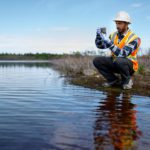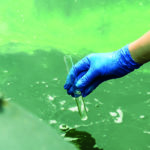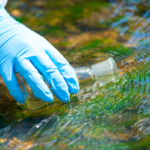Sewage spills still a problem as EA report notes utilities’ winding path of improvement
Water and sewerage firms in England are still under-performing, according to the EA’s latest appraisal of their performance – in relation to spills from...
Striving for environmental balance: nutrient neutrality to futureproof the development pipeline
By Wendy Furgusson, Associate, Environment and Health, Ramboll
With Natural England's recent changes to planning policy causing a reduction in the number of new homes...
Cleared for take-off: Valve system smoothes de-icing fluid removal at airport
A new automated shutdown system that helps protect local watercourses has been installed by AUMA Actuators in a wash-down area for de-icing commercial airliners...
Sewage scandal goes to the High Court
On Wednesday 5 to Thursday 6 July, the High Court will hear a legal challenge that aims to force the Government to toughen up...
Toxic chemical combinations found at over 1,600 river and groundwater sites across England
New analysis of Environment Agency data appears to reveal a worrying level of chemical pollution in rivers and other freshwater sites across England.1 The...
Wild boar liver can be used to map PFAS contamination
A new German study uses the liver of wild boar to map PFAS contamination in the habitat of these animals.
The study focused on 66...
How old is that microplastic? A new way to estimate the age of microplastics...
Researchers have developed a new way to estimate the age of microplastics found in the upper oceans. The method involves a combination of analyzing...
Near real-time data added to popular Sewage Map
Near-real time alerts of raw sewage discharges have been added to the interactive Sewage Map provided by charity The Rivers Trust, and the group...
Utilities commit to smart water installations to help avoid sewer spills
Water technology firm SDS has completed the installation of its latest smart rainwater management systems at homes in Forton, Lancashire, and Deal, Kent, as...
Tool aims to improve the assessment of chemical persistence in the environment
Consultancy firm Ricardo has developed a seemingly first of its kind Persistence Assessment Tool to provide manufacturers and importers of chemical substances and products,...
Innovate UK funding for solution to tackle PFAS
London-based chemical technology firm Puraffinity has developed an innovative approach to eliminating PFAS from water supplies, with funding from Innovate UK.
Its solution is a...
Reflections on a recent water industry event about micropollutants
Multiple solutions to the challenge on emerging contaminants were under discussion at British Water’s recent micropollutants conference. Here, Dr Fabio Bacci reflects on key...
Ofwat and the EA must go further: Lords’ report on sewage pollution welcomed by...
How might the water industry be better regulated to reduce the sewage pollution that floods waterways in England and Wales? A report from the...
CIP micropollutants research published by UKWIR
Thirteen research reports have just been published, which aim to boost the water sector’s knowledge of microplastics and further the understanding of anti-microbial resistance...
Prioritise tackling toxic emissions from tyres, urge experts
A new briefing paper from Imperial College London attempts a deep dive on the pollution produced by the particles sloughed off from vehicle tyres....
Cloud computing: Ohio derailment damage appraisal grapples with conflicting accounts
As details of its spilled cargo have come gradually to light, the Ohio train derailment has elicited “worst of all time” pronouncements, and a...
Can better monitoring and testing help to tackle nitrogen pollution?
By Dr Calum Preece
Improving the monitoring and mitigation of major pollution trends is one of the most important areas of environmental research. It is...
New initiative aims to use Earth observation and geospatial data to detect sewage spills
Ordnance Survey is working with consultancy firm CGI to investigate the possibilities of using Earth observation data to detect sewage from space. Launched by...
Project uses satellite data to detect waste sites on Earth
A new computational system uses satellite data to identify sites on land where people dispose of waste, providing a new tool to monitor waste...
Eating one freshwater fish equals a month of drinking ‘forever chemicals’ water, says US...
A new study appears to find that consumption of just a single serving of freshwater fish per year could be equal to a month...























